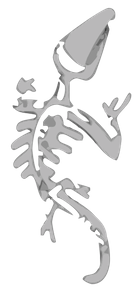
Posted
if i have a simple progression as an example in key Cmaj. -> C F G C
if i wanted to have an arpeggio phrase follow the vertical scales (we will use the defaults given by the palette as modes of the key).
and for the full progression
1. a bass line to follow the scale G mixolydian
2. melody played in C lydian
3. a counter melody played in C maj pentatonic
how would i achieve this?
Fr., 22.06.2018 - 09:08 Permalink
Hello,
this is quite an advanced topic. I know that Synfire Pro has a feature called "Superimposition and Polytonality" but I must admit I have not manage to explore it yet. Please, have a look at the manual page 106.
However, I'm afraid you cannot achieve this in Harmony Navigator since this feature is only available in Synfire Pro.
Best regards
Miloslav
Fr., 22.06.2018 - 21:10 Permalink
Thank you for the reply. I figured Harmony Navigator was limited in these regards. But thought it would be possible in Synfire Pro. My intent is twofold
1. To better grasp how HN and Synfire use the Harmonic context of the moment to do some of its auotmagical stuff
2. Be able to more acurately predict and understand how/why a phrase (in conjunction with all it parameters) gets rendered into it final midi/absolute form
I love HN if just for only the palette. It really allows me to play around with chord progression and see them within context of multiple scales/keys (I am not a great keyboardist). And I have watched numerous videos on youtube and read the manual for Synfire (have not gotten a demo copy yet). But when I start looking at phrases and paramaters it feels like rolling weighted dice in the dark. I have been playing with RapidComposer and I like that I feel more connected with the actual renderd midi (I love the generators and variation engine) . That said it crashes everytime I use it. Also I fell like the GUI and workflow is a little disjointed and options overly cluttered.
I have myself been working on a spec for a composition tool for music creation in the abstract. My vision is the photoshop for music creation with you design in layers of music concepts that stack on one each other and order matters.
Fr., 22.06.2018 - 23:25 Permalink
Thank you for pointing me into the direction of the manual. So simple enough 1 page. It doesn't sound like you can do true polytonality (having mutliple harmonic progessions and assigning instruments as desired). But it does appear to be more than just traditional polychords where you break up a 4+ note chord across multiple instruments in triads, as there is a superimposed scale, though I am not sure actually how it impacts. Is it treated like a verticle scale??
Also it is not clear to me if the superimposed chord has to be a subchord of the harmonic context. e.g. could I superimposed GbMaj over Cmaj? that may sound like its the full chromatic scale and it technically is, but the idea is to voice it out across intruments/pitch spectrum.
Di., 26.06.2018 - 00:41 Permalink
Yes, I understood it just like you: Superimposition doesn't allow for unlimited polytonality. Although you can freely choose the superimposed chord (so it doesn't have to be a subchord of the harmonic context) the superimposed vertical scale is actually derived from the original harmonic context and from the chosen chord and you cannot modify it. I assume it is chosen from the catalogue as the nearest vertical scale containing the given chord.
Regarding the mentioned "unpredictability" of Synfire: I agree with you, the AI embedded in Synfire sometimes behaves like a blackbox which is not very user-friendly (not for me, at least). Based on my experiments so far, I would say that it is possible to obtain predictable results with the Vertical and with the Arpeggio symbols - assuming that you adjust the Interpretation parameter in a certain way. The following settings yielded the most predictable results for me: Form -> Priority = Intervals, Range = Open, Inversions = Checked, Voice Leading -> Scope = Full Scale, Look Ahead = None, Strategy = None, Cooperative = Unchecked. Regarding the other symbols (Horizontal, Chords, Bass) I still didn't fully get their behaviour in certain harmonic contexts, although the Chords and Bass symbols operate very similarly to the Vertical symbols. In another recent thread (https://users.cognitone.com/topic/interpretation-horizontal-symbols-over-alternative-keys) I have described one strange finding about the Horizontal symbols.
Generally, I would prefer if Synfire had some user-configurable system of interpretation rules: Rule-Based Interpretation. By means of those rules, the user could define the actual rendering of the particular figure symbols in a given harmonic context. I can imagine this would be quite challenging for users and also quite difficult to implement efficiently, however, in my opinion this feature would significantly increase the usability of Synfire. Of course, the current interpretation rules embedded in Synfire could represent the default setting, therefore, the user wouldn't have to modify the rules if s/he feels satisfied with the rendering. The Rule-Based Interpretation would only make the system more transparent and manageable.
To be clear, I don't mind the hidden AI behind figure recognition on import. This is okay since the resulting figure is transparent to the user and it can be freely edited. However, I think that figure rendering should be as transparent a process as possible. Which I miss in the current version of Synfire.
Best regards
Miloslav
